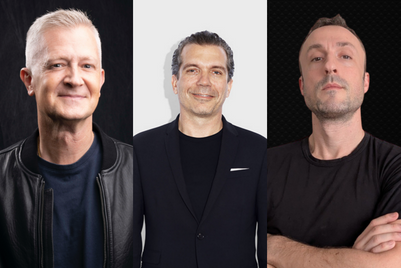
For those of you who are not familiar with this event, let’s begin with a brief introduction. Diner en Blanc, or The White Dinner, started out in Paris 24 years ago, and has today grown to be a sought-after global event. Versions of the dinner have been held all over the world, in locations such as New York, Barcelona, Milan and Sydney. The fun and novelty of the pop-up meeting is the thrill that lies in the location being revealed only at the very last minute, and attendees coming all decked out in white, for a flash mob-like activity. And of course, as with any gathering worth attending, there has to be good, thoughtfully prepared food. In the event’s Asian debut in Singapore, the food was where all the problems began.
In order to score an invite to the event, the organizers asked food bloggers to blog about white foods that they would bring to the picnic should they be invited. When a Singaporean blogger suggested a list of white-colored, local food, he was asked to take down his post and was subsequently uninvited from the event, allegedly due to space constraints. At this point, a storm was already brewing in the social-media space.
Singaporeans are a secretly patriotic bunch. We may complain about the government, the cost of living, the crowded trains, but when it comes to our food… “Don’t play play”.
The fiasco sparked outrage among locals, who were up in arms about our favorite foods being deemed as insufficiently cultured. (This, I have to stress, turned out to be a big misunderstanding.) News spread like wildfire on social media, with many instigating their own picnics such as Dinner en Noir. A key influencer, Mr. Brown, held his own movement, inciting Makan Day. Attendees threatened to boycott the Diner en Blanc event, though it was reported that only 10 out of the 800 participants did a no-show.
It is clear that there was a great deal of misunderstanding between the event’s local organizers and the founders of Diner en Blanc International, but the controversy can still be attributed mainly to the lack of respect, both in communications and actions.
First, one should know better than to put down local food, for an event happening in that country, for the first time. It is almost as blasphemous as telling your mother-in-law that her food could do with more seasoning. You are only setting yourself up to be blasted back. Many times over.
Second, you do not invite someone, and then take back your invitation. Blogger or not, it is pretty much basic courtesy.
Third, just because negativity is brewing on your Facebook Page, taking it down in an attempt to sweep the matter under the rug, as Diner en Blanc’s organizers did, is simply not the right thing to do. Social media is beyond just one platform, beyond owned channels. When the people are pissed, it will spill over.
Now that the dinner has come and gone, and the dust has somewhat settled, it’s time to ask: How could it have been better handled?
We always preach about three crucial guidelines when communicating on social media, and if adopted in this case, these would have certainly helped:
- Be sincere: By asking participants to simply refer to the event guidelines without any consideration for feedback or suggested recommendations, the organizers did not show that they were sincere in their interactions. People turn to social media as a powerful platform that amplifies a voice, and unless you are ready to engage in a transparent sincere manner, it is very easy to sniff out a dead-pan response.
- Consistency matters: One thing people tend to forget is that with social media, what goes out can rarely be taken back. Even if you manage to delete something within the second, a screenshot might have been taken and your deeds recorded forever. Think before you respond and act. It never helps to communicate multiple messages, and delete any comments not in your favor. Respond to them, and be consistent in your replies. At least there is integrity in your interactions.
- Be genuine: It would have been advantageous to the organizers if after discovering the miscommunication, they had stepped forward to admit their errors and openly communicate what was being done to rectify the matter. Very often, while things may blow up quickly with social media, people do tend to forgive and even change camps from detractors to supporters if you show that genuine actions and careful steps are taken to rectify the situation.
At the end of the day, in the social media space, the trustworthy guy—the one who isn’t afraid to step up and take responsibility—is the one who earns the respect and support of his peers.


.jpg&h=334&w=500&q=100&v=20250320&c=1)
.jpg&h=334&w=500&q=100&v=20250320&c=1)
.jpg&h=334&w=500&q=100&v=20250320&c=1)


.png&h=334&w=500&q=100&v=20250320&c=1)
.png&h=334&w=500&q=100&v=20250320&c=1)







.png&h=268&w=401&q=100&v=20250320&c=1)


